featured
The PFAS Threat in Cannabis and Hemp: What You Need to Know
Published
5 hours agoon
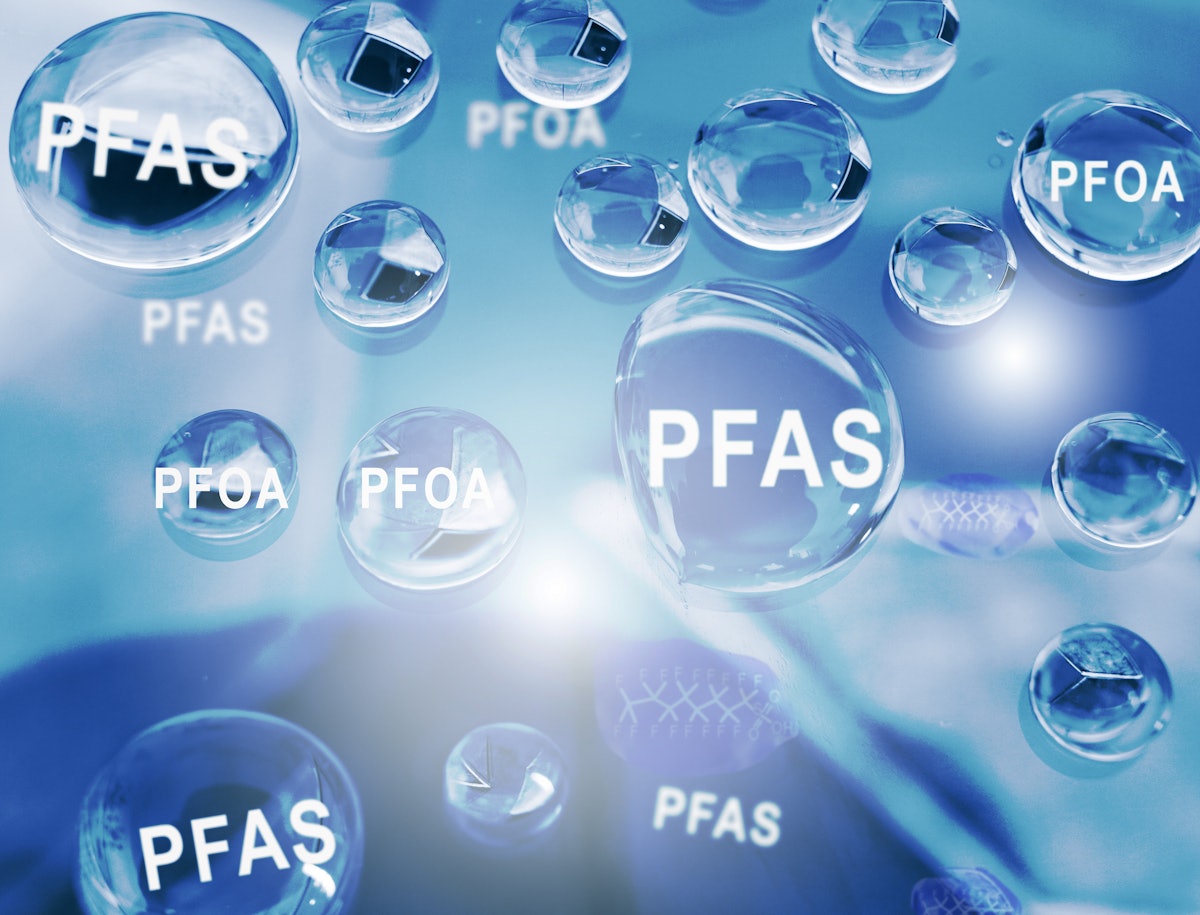
It is no secret that Cannabis sativa L. has proven useful in remediating a wide range of toxins from contaminated soil. Predominantly, because of hemp’s federal legality under the 2018 Farm Bill, the focus of research and analysis on the subject in the U.S. has been centered around that subspecies of the plant.
“Hemp has very good prospects as a phytoremediator …. Hemp is used to clean up metals, pesticides, solvents, explosives, crude oil, polyaromatic hydrocarbons, and toxins,” according to the National Library of Medicine.
Hemp has also been used to remove “forever chemicals” from the soil. The term “forever chemicals” refers to slow-to-degrade PFAS, or per- and polyfluoroalkyl substances, which “are a group of manufactured chemicals that have been used in industry and consumer products since the 1940s because of their useful properties,” according to the U.S. Environmental Protection Agency (EPA). There are thousands of different PFAS, the EPA reports, and they can be found in everything from drinking water and food — “for example in fish caught from water contaminated by PFAS and dairy products from livestock exposed to PFAS” — to food packaging, and household and personal care products. (The EPA provides a list of PFAS chemicals here.)
In October 2024, for example, Fast Company reported on an Indigenous tribe in Maine that “demonstrated that hemp plants had success removing some of these stubborn toxins from the soil.”
PFAS have increasingly been placed in the spotlight as scientific studies have found that PFAS exposure can cause adverse health effects, including cancer.
In October 2024, Stateline reported:
“Legislative momentum against PFAS has surged this year, as at least 11 states enacted laws to restrict the use of ‘forever chemicals’ in everyday consumer products or professional firefighting foam. … Meanwhile, lawmakers in some states also passed measures that require industries to pay for testing or cleanup; order companies to disclose the use of PFAS in their products; and mandate or encourage the development of PFAS alternatives, according to Safer States, an alliance of environmental health groups focused on toxic chemicals. In total this year, at least 16 states adopted 22 PFAS-related measures, according to the group. Since 2007, 30 states have approved 155 PFAS policies, the vast majority of them in the past five years.”
Cannabis sativa L.’s ability to absorb toxic chemicals, including PFAS, from the soil has been a significant feather in this historically controversial plant’s cap; however, it also has raised concerns about what happens to the toxins once absorbed by the plants, especially because PFAS are not commonly tested for in cannabis, unlike microbials, heavy metals and certain pesticides.
Northern Michigan University (NMU) researchers are studying hemp’s ability to absorb PFAS from the soil as well as its potential to break down the chemicals. “NMU Chemistry Professor Lesley Putman said the hope is that hemp will not only draw up PFAS from the ground, but ultimately be able to degrade them, unlike the typical and more costly remediation methods using granular activated charcoal or reverse osmosis,” reported NMU’s news outlet Northern Today.
“Even if hemp proves equally or more effective than activated charcoal in preventing PFAS from permeating the water table, ‘You’re still left with plants that contain toxins,’” Putman told Northern Today. “NMU contracts with a company that safely removes and stores all toxic waste generated by her research, but a large-scale contaminated site solution is dependent on finding a way to degrade PFAS once they’re taken up by the hemp plants.”
And then there is another concern: the potential accidental contamination of plants cultivated for human consumption, whether in cannabis or hemp.
“According to Bloomberg Law, there has been a seismic shift over the last two years in the legal landscape surrounding health and environmental damage as awareness of PFAS has expanded,” according to a 2023 alert from law firm McGlinchey. A “surge of lawsuits and additional enforcement risks” has followed, as has a “growing concern regarding the potential impact of regulatory focus on the cannabis industry,” the firm reported.
McGlinchey cited a case in Washington state that had “devastating” impacts on cannabis businesses. While not specifically centered on PFAS, the case illustrates the potential implications of regulatory scrutiny over potential cannabis contamination from soil and water toxins. An alert from the Washington State Liquor and Cannabis Board (WSLCB) noted cannabis’s high contaminant-absorption ability and stated that it had “detected a chemical, which may be harmful in the soil of a particular region of the state, known as dichlorodiphenyldichloroethylene (DDE).” (DDE is a chemical similar to the pesticide DDT “that can form when DDT breaks down,” according to the Agency for Toxic Substances and Disease Registry.)
While cannabis cultivators were not using the pesticide, they suffered the consequences of potentially contaminated crops.
“The WSLCB placed administrative holds on licensees operating in the relevant geographic area …, requested lists of all products produced by licensees in the previous eight months, and further requested that licensees conduct a recall on all products,” McGlinchey stated. “Additionally, the WSLCB disclosed that it will be testing potentially affected products currently on retail shelves and stated that further (unknown) action can be expected. The result has devastated the affected businesses, despite no improper conduct of their own.”
It seems unlikely that with the widespread mainstream use of the pesticide prior to an EPA ban on it in 1972 that DDT’s and/or DDE’s presence in soil is limited to Washington. “Americans sprayed more than 1.35 billion tons of the insecticide—nearly 7.5 pounds per person—on crops, lawns and pets and in their homes before biologist Rachel Carson and others sounded the alarm about its impacts on humans and wildlife,” reported Scientific American in its article “Consequences of DDT Exposure Could Last Generations.”
McGlinchey said cannabis businesses could “anticipate similar actions with respect to other contaminants, including PFAS. Potential PFAS contamination can enter cannabis products through various pathways such as irrigation water, fertigation, nutrient delivery systems, and soil, increasing the need for regular and ongoing testing to mitigate the possible risks of exposure.”
“PFAS that end up in consumer goods, such as cannabis, is a huge safety risk,” Seth Goldberg, then-partner at Duane Morris, told Beverage Information Group in early 2024. “And now we’re seeing corresponding litigation risks with PFAS where they have been subject to a growing number of product liability and consumer class action matters.”
McGlinchey noted several steps cannabis businesses can take to minimize the risk of contamination, including avoiding the reuse of wastewater and employing best practices for water management.
While that advice is directed at any cannabis business, a January 2024 article by Duane Morris attorney Ethan R. Feldman specifically cautioned cannabis beverage makers. The article, “Cannabis Beverage Manufacturers Should Pay Close Attention to Their Water Supplies,” cited a class action lawsuit against Health-Ade, a Southern California kombucha company, alleging the product contained PFAS and did not disclose that on the label. Health-Ade settled the suit in September 2024, though terms were not disclosed.
“The PFAS kombucha lawsuit should serve as a reminder to cannabis beverage manufacturers that they must be vigilant in complying with not only state regulations pertaining to cannabis manufacturing and distribution, but also must be mindful to appropriately handle PFAS-contaminated water the company uses to manufacture cannabis beverage products,” Feldman wrote.
“Traditionally we see cultivators adopting water filtration when their source water has known issues,” said Darrin Sanocki, water treatment category manager at Hydrofarm. “The raising awareness of PFAS is making more growers rethink what’s in their water. We always tell customers that the first step is ‘let’s find out by ordering a comprehensive water test.’ There are plenty of labs offering different mail-in water test kits including dedicated test kits for PFAS. After that we can discuss the mitigation strategy. Reverse Osmosis is most effective technology to remove almost any contaminants but there are other options proven to be effective against PFAS, such as nanofiltration or Granular Active Carbon (GAC).”
Cannabis businesses may also want to take precautionary steps when buying real estate for cannabis cultivation. AEI Consultants—a firm providing building, environmental, land and sustainability consulting, and property valuation services throughout North America—advises that when purchasing real estate, buyers include PFAS in a Phase I Environmental Site Assessment (ESA).
“While only PFOA and PFOS [specific types of PFAS] are currently required to be evaluated under ASTM E1527-21, it is strongly recommended to assess broader PFAS risks—especially if your property falls into a high-risk category (e.g., fire training areas, airports, industrial facilities, or agricultural land using biosolids),” according to a PFAS and real estate guide on the firm’s website. “Given the rapid pace of PFAS regulation, proactively identifying the potential presence of PFAS—including non-regulated compounds—during your current due diligence process helps avoid future liability, reduce risk of property devaluation, facilitate smoother future transactions or refinancing.”
Not to mention helping to prevent potential contamination of your cannabis or hemp crops.
As regulatory scrutiny and litigation increase, the cannabis and hemp industries—notably due to the plants’ high absorption abilities—could come under increased scrutiny as well. And preparing now could prevent a host of potential problems in the future.
Read more from our most recent newsletter:
Sponsored: World-Class Growing Solutions

Author: mscannabiz.com
MScannaBIZ for all you Mississippi Cannabis News and Information.
You may like
-


World-Class Growing Solutions | Cannabis Business Times
-


Summers are better with Flav
-
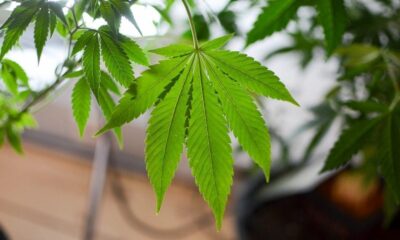

Nebraska Medical Cannabis Commission Proposal Will ‘Destroy Patient Access,’ Advocates Say
-
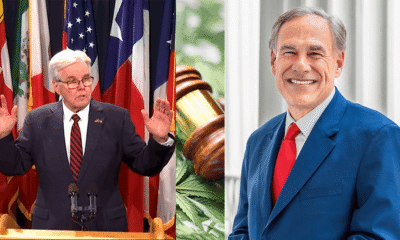

Circuit Court Ruling for Arkansas Renders Texas Governor’s Hemp Veto Argument Moot
-


Jones Soda Co. Sells Mary Jones THC Beverage Brand
-
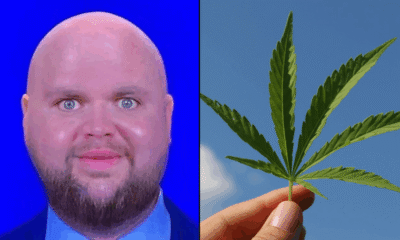

Feds Say Tourist Who Admitted To Prior Marijuana Use In Legal Places Was Denied Entry To US Over Drugs—Not Bald JD Vance Meme
featured
World-Class Growing Solutions | Cannabis Business Times
Published
5 minutes agoon
June 25, 2025
Hydrofarm provides a portfolio of brands to support indoor cultivators of all sizes. The company’s offerings range from racking to lighting, nutrients and grow media, as well as a wide range of cultivation supplies.
Hydrofarm’s variety of brands include:
Visit Hydrofarm.com for more information!
More from our latest newsletter:
Sponsored: The PFAS Threat in Cannabis and Hemp: What You Need to Know

Author: mscannabiz.com
MScannaBIZ for all you Mississippi Cannabis News and Information.
featured
Nebraska Medical Cannabis Commission Proposal Will ‘Destroy Patient Access,’ Advocates Say
Published
1 hour agoon
June 25, 2025
“I believe it is another direct and intentional step that they are taking to absolutely destroy patient access to medical cannabis.”
By Zach Wendling, Nebraska Examiner
It’s unclear what requirements the state commission to regulate medical cannabis in Nebraska might enact to license such operations by this fall, ahead of a deadline next week for detailing the criteria for applications.
The Nebraska Medical Cannabis Commission has until July 1 to write licensing criteria under state law. But as commissioners gear up for their next meeting Thursday, the first with all five commissioners, they have indicated they will consider adopting draft or emergency criteria to accept or deny licensing applications after July 1.
Licensing must begin by October 1, the same time any other requirements for medical cannabis must be enacted, according to a pair of laws that voters overwhelmingly approved in a pair of November ballot measures.
However, with just hours until the next commission meeting, there is no specific indication of what criteria the board will consider.
Also on the agenda is a legal “memorandum of agreement” to help with future rulemaking involving the Nebraska Department of Health and Human Services (DHHS) and Gov. Jim Pillen’s (R) Policy Research Office, the policy lobbying arm of the state’s chief executive.
No draft rules or regulations, including licensing criteria, have yet been made public.
Crista Eggers, executive director of Nebraskans for Medical Marijuana, which has led medical cannabis ballot measures since 2020, said she’s faced a lack of transparency and been unable to reach the commission or have questions answered in recent weeks, leaving many advocates “extremely frustrated.”
“I didn’t know we could be more frustrated than what we have been previously, but there just seems to be a new layer added every single day,” Eggers said Tuesday.
A legal ‘memorandum of agreement’
Final regulations can’t be approved this week because state law requires 30 days of notice before a public hearing on proposed guidelines. If there are no major changes after that, and the commission approves the guidelines, the governor and Attorney General Mike Hilgers (R) would have final say.
A copy of the proposed “memorandum of agreement” obtained by the Nebraska Examiner indicates that the commission will consider contracting with DHHS for “legal services,” such as providing research, administration and enforcement of commission duties. It could also recommend draft legislation or policies, advise on legal impacts and participate in the rulemaking process.
DHHS CEO Steve Corsi, Policy Research Director Kenny Zoeller and Dr. Monica Oldenburg, who chairs the Medical Cannabis Commission, would enter the agreement if adopted Thursday.
Oldenburg did not respond to a request for comment ahead of the meeting.
The Attorney General’s Office has already pledged to sue the Medical Cannabis Commission if and when it begins medical cannabis licensing. Office spokesperson Suzanne Gage said Tuesday that the office will provide legal support and guidance to the Medical Cannabis Commission, as it does to other agencies and commissions.
The commissioners are already being sued by a former state senator alleging that the Nebraska laws violate federal law that classifies marijuana as a Schedule I drug that has a high potential for abuse and “no currently accepted medical use.”
Pillen and Corsi, as well as Eggers and other ballot sponsors, are among those named in that lawsuit. A Lancaster County District Court judge is considering whether to dismiss the case.
DHHS: ‘Cannabis is not a medication’
The ballot measure that Eggers’s organization led through November 2024 was designed to sidestep DHHS, because officials of the state health agency have “adamantly” opposed legalization over many years. That includes March, when DHHS again opposed legislation, led by Republican State Sen. Ben Hansen of Blair and supported by Eggers and other longtime advocates, to help clarify the process for implementing the ballot initiatives.
Dr. Roger Donovick, executive medical officer for DHHS, said at a March legislative hearing: “DHHS maintains that cannabis is not a medication and does not agree with its legalization.”
Under the ballot measures, any health care practitioner can recommend that patients or caregivers legally possess up to five ounces of medical cannabis. Cannabis can’t yet be legally purchased in Nebraska, and some advocates have turned to health care providers in neighboring states for authorization.
Eggers said the legal memorandum would give “almost full authority” to DHHS to take over the rulemaking, which the campaign never intended and which voters never considered.
Instead, voters legalized medical cannabis and created the five-member Nebraska Medical Cannabis Commission, made up of three governor-appointed members of the Nebraska Liquor Control Commission and up to two more members also appointed by the governor.
Eggers said that was because the Liquor Control Commission has had a good track record of regulation and has valued the necessity of safeguards and of providing guidance to law enforcement.
“I believe it is another direct and intentional step that they are taking to absolutely destroy patient access to medical cannabis,” Eggers said of involving DHHS.
‘Another gut punch’
A DHHS spokesperson confirmed Tuesday that the agency has neither issued any guidance related to medical cannabis nor received any complaints against physicians related to the new laws since they took effect in mid-December.
“DHHS will adhere to state statute and follow regulations and licensing processes implemented by the Nebraska Cannabis Commission,” said Jeff Powell, DHHS director of communications.
Eggers said DHHS, however, has looked at cannabis as a “farce.” She laid the blame for the confusion and lack of transparency at the feet of Hilgers and Pillen. Hilgers led opposition to the most recent legislative bill that advocates rallied behind. It fell 10 votes short last month.
“Talk about another gut punch to the people of this state,” Eggers said. “And the ultimate gut punch is to the patients that are waiting at home, that have hope that on Thursday we are one step closer to access, but what I think we see rolling out here is that the day that they receive access is getting farther and farther and farther away.”
Some lawmakers who backed the hands-off legislative recommendation from Hilgers, as well as U.S. Sen. Pete Ricketts (R-NE), a former governor, did so partly because they first wanted to see what the Medical Cannabis Commission would do.
A separate legislative attempt to shield physicians from possible civil, criminal or professional liability from recommending medical cannabis also failed last month.
Public comment desired
Eggers said she understands patients and advocates are tired and may feel as though their voices aren’t being heard, but she said families, loved ones, neighbors and children still need Nebraskans to get loud and show up.
She said Nebraskans have a right and a duty to be part of the process. Commissioners have said they want to hear from the public, too.
“At some point, I do believe that lawmakers and state officials who are doing everything in their power to stand in the way of this and to ignore the voice of the people, to stand in the way of the will of the people, I do believe they lose at some point,” Eggers said. “But at this point, they’re winning, and Nebraskans should be absolutely disgusted…with how this is being handled.”
The Medical Cannabis Commission will meet at 10 a.m. Thursday in the first-floor hearing room of the Nebraska State Office Building in Lincoln, 301 Centennial Mall South.
Commissioners at their first meeting June 9 preliminarily approved public comment periods of up to one hour and three minutes per speaker, though a majority of the commission can change how the public participates. Written comments can be submitted to [email protected].
This story was first published by Nebraska Examiner.
Photo courtesy of Philip Steffan.

Author: mscannabiz.com
MScannaBIZ for all you Mississippi Cannabis News and Information.
featured
Circuit Court Ruling for Arkansas Renders Texas Governor’s Hemp Veto Argument Moot
Published
2 hours agoon
June 25, 2025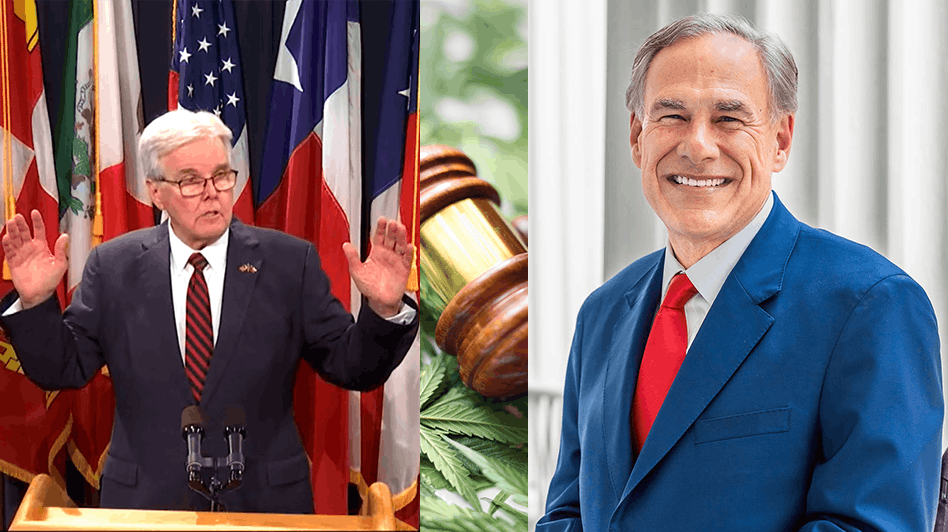
A federal court vacated a preliminary injunction on June 24 that had been blocking Arkansas from implementing a ban on certain hemp-derived cannabinoids, including delta-8 THC, for the past two years.
Arkansas Gov. Sarah Huckabee Sanders signed Senate Bill 358 (Act 629) into law in April 2023, legislation to prohibit intoxicating hemp-derived cannabinoids by classifying a list of tetrahydrocannabinols as Schedule VI substances in the state. That list included delta-8, delta-9 and delat-10 THC, among other compounds.
The intent of the Arkansas General Assembly and Sanders was to stop the production and sale of intoxicating substances derived from federally compliant industrial hemp, as defined under the 2018 Farm Bill. State lawmakers and the governor specifically had concerns with products derived from industrial hemp that were produced as a result of a synthetic chemical process.
While Act 629 took effect in August 2023, U.S. District Judge Billy Roy Wilson placed a preliminary injunction on its implementation five weeks later after a quartet of cannabis-related businesses filed a lawsuit claiming that the ban violates the U.S. Constitution’s Supremacy, Due Process, Takings and Commerce clauses.
The plaintiff businesses include Bio Gen LLC, Drippers Vape Shop LLC, Cigarette Store LLC (d/b/a Smoker Friendly) and Sky Marketing Corp. (d/b/a Hometown Hero)—collectively, “Bio Gen.”
Wilson also denied a motion to dismiss that Sanders, Attorney General Tim Griffin and other Arkansas officials filed in the Eastern District Court. In part, the district court judge ruled that Bio Gen would likely succeed on the merits of its Supremacy Clause claim because the 2018 Farm Bill likely preempted Act 629.
However, the U.S. Court of Appeals for the Eighth Circuit reversed the lower court’s ruling this week, dealing a victory to the Arkansas officials.
“The text of the 2018 Farm Bill shows only that Congress wanted to facilitate state legalization of hemp, if a state wants to. Congress allows states to legalize hemp by removing the biggest hurdle—federal criminalization,” Eighth Circuit Judge Jonathan Allen Kobes wrote in the June 24 ruling.
Kobes said that, under the 2018 Farm Bill, Congress authorized the U.S. Department of Agriculture to allow states to apply for and receive the primary regulatory authority over their in-state hemp production programs.
Under the 2018 Farm Bill, states cannot interfere with the interstate commerce of hemp by preventing the continuous transportation of federally compliant materials through their borders. The Eighth Circuit ruled that Act 629 does not do that.
“The [2018 Farm Bill] text does not support Bio Gen’s claim that Congress intended to ‘federally protect hemp’ and coercively mandate nationwide legality,” the judge wrote. “States may obtain primary regulatory authority over hemp production. And with that primary regulatory authority, states may ‘regulate the production of hemp’ in any manner ‘more stringent than [the 2018 Farm Bill].’”
In other words, it’s the Eighth Circuit Court’s opinion that just because states may legalize hemp under the 2018 Farm Bill does not mean they are required to, nor does it mean they have to utilize the federal definition of hemp: a plant that tests at or below 0.3% delta-9 THC by dry-weight during a pre-harvest field test.
“This is a huge victory for the state and a great step towards protecting generations of Arkansas’ children from the dangers of synthetic marijuana,” Sanders said on social media following Tuesday’s court decision.
The American Trade Association for Cannabis and Hemp (ATACH), which filed an amicus brief in December 2023 supporting Arkansas officials, provided a statement to Cannabis Business Times in support of the Eighth Circuit’s decision.
“ATACH welcomes today’s Eighth Circuit ruling, which affirms the right of states to regulate intoxicating hemp-derived products and provides clarity to state lawmakers seeking to address these products in their states,” ATACH Vice President of Policy Chris Lindsey said.
The Eighth Circuit’s opinion holds jurisdiction in seven states: Arkansas, Iowa, Minnesota, Missouri, Nebraska, North Dakota and South Dakota.
Still, when Texas Gov. Greg Abbott vetoed legislation late Sunday night that would have banned consumable hemp products with trace amounts of THC in the Lone Star State, he pointed to neighboring Arkansas.
In his veto proclamation, Abbott argued that had he signed Senate Bill 3, its enforcement would have been enjoyed for years, leaving public health and safety concerns related to intoxicating hemp products unaddressed.
“In 2023, Arkansas enacted Senate Bill 358, which (like this bill) would have criminalized hemp products that Congress expressly legalized in the 2018 Farm Bill,” Abbott wrote on June 22, two days before the Eighth Circuit’s ruling.
“[The 2018 Farm Bill] converted hemp and hemp products from contraband to lawful commodities. The Arkansas law was challenged, and a federal court swiftly halted it in its entirety, finding it was likely preempted by federal statutes and that its criminal provisions were likely unconstitutionally vague,” Abbott wrote. “The result in Arkansas? Their law has sat dormant, meaningless, having no effect for nearly two years while further legal proceedings play out. That result must be avoided in Texas.”
RELATED: Texas Governor Vetoes Ban on Hemp Products, Calls For Special Session to Regulate THC
Instead of signing S.B. 3 to prohibit intoxicating hemp products in Texas, Abbott included the legislation as one of five bills for legislators to address during a 30-day special session slated to begin July 21, recommending they instead craft a regulatory framework for hemp products similar to alcohol.
The following day, Texas Lt. Gov. Dan Patrick, who spearheaded S.B. 3’s passage as the presiding officer in the state Senate, accused his GOP ally in the governor’s office of wanting to “legalize recreational marijuana.”
“That’s the headline, folks, because that’s what his proclamation does,” Patrick said during a June 23 press conference. “Now, whether it’s unintentional and he didn’t think through it, or whether it’s intentional, that’s the result of the veto.”
Patrick also questioned whether the state’s hemp businesses were running terrorist or cartel money laundering schemes, claiming that someone told him to “I better watch my step.” The lieutenant governor also asked, “Who convinced [Abbott] on his staff from the outside to kill Senate Bill 3?”
Patrick also reaffirmed that the governor indicated to him that he would sign S.B. 3, saying that he was puzzled by the last-minute veto because of the broad support for the legislation by lawmakers and law enforcement officials.
Patrick pointed to the 105 of 108 Republicans in the Texas Legislature who supported S.B. 3, suggesting that Abbott should have respected that near-unanimous backing for the bill.
“The governor and I will work together in the future, and we’ll disagree from time to time, but this is a fight that didn’t need to be,” he said.
Patrick also targeted Abbott’s inclusion of the Arkansas injunction in his veto proclamation, calling into question the governor’s argument that S.B. 3 would be subject to “valid constitutional challenges.” Abbott leaned on his background as a former Texas Supreme Court Justice and state attorney general in making that conclusion.
Despite Abbott’s law background, Patrick said the governor’s argument was “flawed.”
“We believe the Eighth Circuit will stand with Arkansas,” said Patrick, whose prediction came true the next day. “And so, if that happens while we’re going through this charade, then what’s the governor going to say? ‘Oh, I guess I was wrong about Arkansas?’”
Patrick said it should not matter if the same legal battle unfolds in the U.S. Fifth Circuit Court of Appeals, which holds jurisdiction over Texas.
“Since when did we care who sued us when we passed a bill?” the lieutenant governor asked. “We deal with lawsuits all the time, so that shouldn’t be a surprise.”
Following the Eighth Circuit Court’s ruling on June 24, Patrick posted an I-told-you-so message on X, indicating that he’ll fight to maintain S.B. 3’s prohibition language in the upcoming special session.
“As I said yesterday at my press conference, it appeared to my legal team and me that Arkansas would win this case and be able to ban THC,” he wrote. “It won’t be long before 8,000 smoke and vape shops will be out of business in Texas. All we have to do is pass S.B. 3, just like we passed during the regular session.”

Author: mscannabiz.com
MScannaBIZ for all you Mississippi Cannabis News and Information.

World-Class Growing Solutions | Cannabis Business Times

Summers are better with Flav

Nebraska Medical Cannabis Commission Proposal Will ‘Destroy Patient Access,’ Advocates Say

Circuit Court Ruling for Arkansas Renders Texas Governor’s Hemp Veto Argument Moot

Jones Soda Co. Sells Mary Jones THC Beverage Brand

Feds Say Tourist Who Admitted To Prior Marijuana Use In Legal Places Was Denied Entry To US Over Drugs—Not Bald JD Vance Meme

The PFAS Threat in Cannabis and Hemp: What You Need to Know

Chicago Police Can’t Search Vehicles Based on Smell of Raw Cannabis Under New Rules

Marijuana Opponents ‘Have Lost’ The Debate, GOP Senator Says, Arguing ‘It’s Time’ To Regulate It Like Alcohol And Tobacco

How much do you know about Pennsylvania’s medical marijuana program? Take our quiz.

Verano Unveils Bodega-Style Dispensary Experience at Zen Leaf Cave Creek in Phoenix

Congress to vote on cannabis & psychedelics amendments this week (Newsletter: June 25, 2025)

Rockford teen intended to deliver 300+ grams of cannabis, police say

El Paso cannabis shops relieved after Gov. Abbott vetoes ban on THC products

More older adults are using cannabis, study says

Marijuana use rising among seniors, and doctors are sounding alarms

More older Americans are using marijuana, according to new data

With Texas Hemp Ban Now Vetoed By Governor, Industry And Lawmakers Turn To Regulation

House To Vote On Letting VA Doctors Recommend Medical Marijuana To Military Veterans And Supporting Psychedelics Research

Montana Governor Rejects Bill To Let Tribes Negotiate Marijuana Regulations With State

Texas Lt. Gov. puzzled by veto of THC ban, says Gov. Abbott wants to legalize marijuana – NBC 5 Dallas-Fort Worth

What strains would these queer icons smoke?

RFK Says Trump Administration Could Provide Psychedelic Therapy To Military Veterans ‘Within 12 Months’

Texas’s Dan Patrick vows to keep fighting against THC after Abbott vetoes ban

Alert: Department of Cannabis Control updates data dashboards with full data for 2023

Connecticut Appoints The US’s First Cannabis Ombudsperson – Yes there is a pun in there and I’m Sure Erin Kirk Is Going To Hear It More Than Once!

5 best CBD creams of 2024 by Leafly

Free delta-9 gummies from Bay Smokes
New Study Analyzes the Effects of THCV, CBD on Weight Loss

EU initiative begins bid to open access to psychedelic therapies

Mississippi city official pleads guilty to selling fake CBD products

May 2024 Leafly HighLight: Pink Runtz strain

Curaleaf Start Process Of Getting Their Claws Into The UK’s National Health System – With Former MP (Resigned Today 30/5/24) As The Front Man

5 best autoflower seed banks of 2024 by Leafly

Horn Lake denies cannabis dispensary request to allow sale of drug paraphernalia and Sunday sales | News

Discover New York’s dankest cannabis brands [September 2024]

Nevada CCB to Accept Applications for Cannabis Establishments in White Pine County – “Only one cultivation and one production license will be awarded in White Pine County”

Press Release: CANNRA Calls for Farm Bill to Clarify Existing State Authority to Regulate Hemp Products

Local medical cannabis dispensary reacts to MSDH pulling Rapid Analytics License – WLBT

6 best CBD gummies of 2024 by Leafly

5 best THC drinks of 2024 by Leafly

The Daily Hit: October 2, 2024

5 best delta-9 THC gummies of 2024 by Leafly

People In This State Googled ‘Medical Marijuana’ The Most, Study Shows

Weekly Update: Monday, May 13, 2024 including, New Guide for Renewals & May Board meeting application deadline

Thailand: Pro-cannabis advocates rally ahead of the government’s plan to recriminalize the plant

PRESS RELEASE : Justice Department Submits Proposed Regulation to Reschedule Marijuana

Press Release: May 9, STIIIZY and Healing Urban Barrios hosted an Expungement Clinic & Second Chance Resource Fair
Trending
-

 California Cannabis Updates1 year ago
California Cannabis Updates1 year agoAlert: Department of Cannabis Control updates data dashboards with full data for 2023
-

 Breaking News1 year ago
Breaking News1 year agoConnecticut Appoints The US’s First Cannabis Ombudsperson – Yes there is a pun in there and I’m Sure Erin Kirk Is Going To Hear It More Than Once!
-

 best list11 months ago
best list11 months ago5 best CBD creams of 2024 by Leafly
-

 Bay Smokes12 months ago
Bay Smokes12 months agoFree delta-9 gummies from Bay Smokes
-

 cbd1 year ago
cbd1 year agoNew Study Analyzes the Effects of THCV, CBD on Weight Loss
-

 Business9 months ago
Business9 months agoEU initiative begins bid to open access to psychedelic therapies
-

 Mississippi Cannabis News1 year ago
Mississippi Cannabis News1 year agoMississippi city official pleads guilty to selling fake CBD products
-

 California1 year ago
California1 year agoMay 2024 Leafly HighLight: Pink Runtz strain




